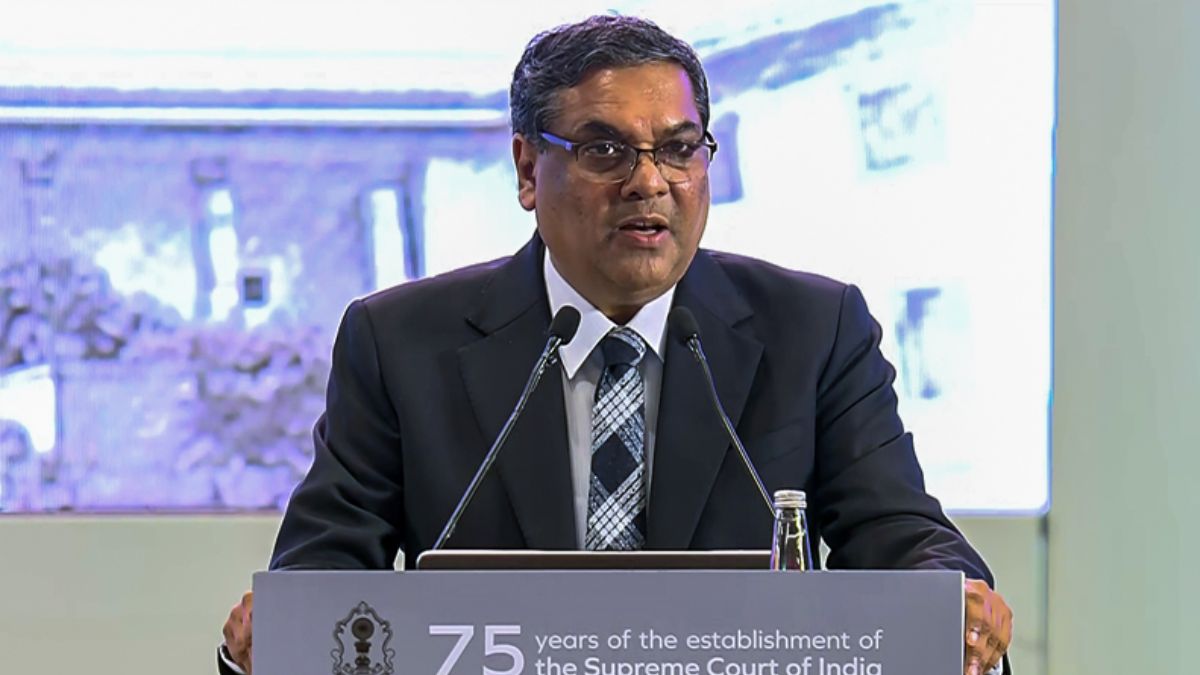Justice Sanjiv Khanna’s nomination as the next Chief Justice of India signifies a crucial transition in the nation’s highest judicial authority. Chief Justice of India DY Chandrachud’s recommendation highlights Justice Khanna’s extensive experience and significant contributions to the Supreme Court. This article delves into Justice Khanna’s background, notable judgments, and the implications of his potential appointment.
Justice Sanjiv Khanna: A Legal Career Overview
Early Life and Legal Education
Justice Sanjiv Khanna’s journey began with his schooling at the Modern School in New Delhi. He subsequently pursued his legal education at the prestigious Campus Law Centre of the Faculty of Law, University of Delhi, enrolling with the Bar Council of Delhi in 1983. This foundation laid the groundwork for a distinguished career spanning decades. His early practice involved diverse legal areas within the Delhi District Courts, showcasing an early commitment to versatility and a broad legal foundation.
From Delhi High Court to Supreme Court
Following his early work at the District Courts in the Tis Hazari Complex, Justice Khanna’s experience broadened to encompass diverse legal fields at the Delhi High Court. His expertise expanded to include crucial areas such as direct taxation, arbitration, constitutional law, company law, land law, environmental law, and medical negligence. This wide-ranging experience undoubtedly prepared him for the complexities of Supreme Court jurisprudence. Notably, he served as the Senior Standing Counsel for the Income Tax Department and later as the Standing Counsel (Civil) for the National Capital Territory of Delhi, accumulating invaluable experience in governmental legal matters. His appointment as an additional judge of the Delhi High Court in 2005, and subsequently as a permanent judge in 2006, marked key milestones in his professional trajectory. The culmination of his legal journey came with his elevation as a Supreme Court judge on January 18, 2019, a testament to his commitment and competence.
Key Contributions and Significant Cases
His involvement in significant landmark cases solidified his position as a leading figure in the judiciary. This showcases Justice Khanna’s dedication to upholding the integrity of judicial processes and the legal principles that underpin India’s democratic system. The impact of these cases will continue to shape the nation’s legal landscape for years to come.
Significant Judgments and Judicial Philosophy
EVM Verification and Electoral Integrity
Justice Khanna’s involvement in a Division Bench that dismissed a plea for 100% VVPAT verification of votes cast on Electronic Voting Machines (EVMs) in 2024 highlights his approach to electoral matters. His judgment emphasized the current system’s efficiency and reliability, underscoring the importance of maintaining the integrity and effectiveness of the electoral process. This ruling underlines his belief in striking a balance between demands for greater transparency and the need for a practical, functional system.
Electoral Bond Scheme and Constitutional Scrutiny
The invalidation of the Electoral Bond Scheme in 2024, in a five-judge bench which included Justice Khanna, demonstrates his commitment to upholding constitutional principles and ensuring accountability in governance. This crucial ruling demonstrates Justice Khanna’s steadfastness in prioritizing transparency and the avoidance of opacity in political funding mechanisms. It underscores his profound commitment to fairness and checks and balances within India’s political and administrative structures.
Article 370 and Constitutional Interpretation
Justice Khanna’s contribution to the historic judgment that upheld the abrogation of Article 370, which had granted special status to Jammu and Kashmir, exemplifies his understanding and application of constitutional law. This momentous decision reflected a complex interpretation of the Constitution, weighing constitutional provisions and geopolitical implications, underlining the comprehensive understanding of legal and constitutional matters Justice Khanna possesses.
Potential Implications of Justice Khanna’s Appointment
The Six-Month Tenure and Future Direction
If approved by the government, Justice Khanna’s tenure as Chief Justice will be relatively brief, spanning six months, concluding on May 13, 2025. This short period necessitates clear priorities and strategic decision-making in managing the Supreme Court’s caseload and shaping its direction. This transition and short tenure may be of significance given that he assumes office nearing the conclusion of a five-year tenure period. The six months are a crucial period for continuity and transition within the Supreme Court.
Continuity and Change in Judicial Leadership
Justice Khanna’s appointment offers both a sense of continuity, given his experience within the Supreme Court, and the potential for unique perspectives based on his personal legal history and judgments rendered. His diverse experience is a valuable asset and shows a breadth and depth in various areas of legal jurisprudence. The judicial priorities which Justice Khanna would place in these six months will be crucial as there would be limited time available for such implementations.
Expectations and Challenges
His appointment will bring both high expectations and formidable challenges. Managing the Supreme Court’s workload, addressing critical issues in pending cases and implementing efficient case management methods will be imperative for an optimal usage of this period. Maintaining the Supreme Court’s independence and ensuring its smooth functionality is critical for his tenure in maintaining a good balance in efficiency and output.
Take Away Points
- Justice Sanjiv Khanna’s distinguished career highlights his extensive legal experience and understanding.
- His involvement in significant landmark Supreme Court cases exemplifies his unwavering commitment to upholding the rule of law and protecting India’s Constitutional principles.
- His appointment as the next Chief Justice of India signifies a notable transition, carrying the expectations of continuing judicial independence, efficiency and implementing significant case management measures.
- His relatively brief tenure presents both challenges and opportunities for prioritizing key issues and streamlining the Supreme Court’s functioning during a crucial period of leadership transition.




